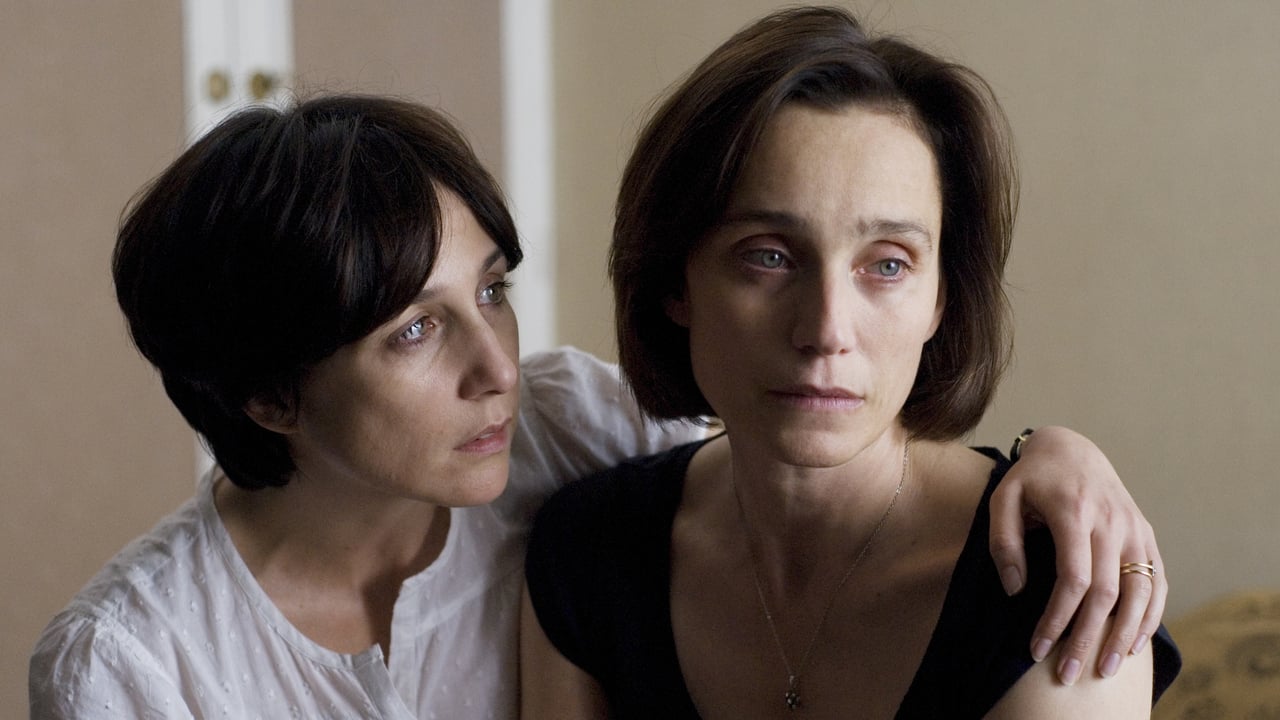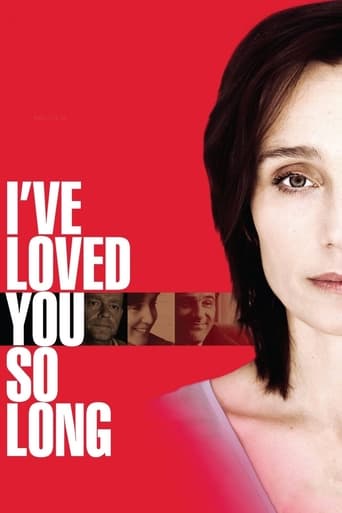

Best movie of this year hands down!
... View Morea film so unique, intoxicating and bizarre that it not only demands another viewing, but is also forgivable as a satirical comedy where the jokes eventually take the back seat.
... View MoreThe acting is good, and the firecracker script has some excellent ideas.
... View MoreIt’s fine. It's literally the definition of a fine movie. You’ve seen it before, you know every beat and outcome before the characters even do. Only question is how much escapism you’re looking for.
... View MoreJuliette Fontaine (Kristin Scott Thomas) has been released from prison after fifteen years for murdering her six year old son. She is welcomed into the home of her younger sister Léa (Elsa Zylberstein). Léa's husband isn't that happy about it. She has two adopted daughters. She is scarred by the incident. Juliette has always been a shameful family secret and is closed off. People usually abandon her when they learn of her crime.I'm glad that murdering her son is revealed early on. It could have been an annoying secret to hold over the audience. Kristin Scott Thomas gives a quietly nuanced performance. Elsa Zylberstein is even better as the damaged younger sister. The slow ponderous pace gives a moody tone although the final reveal wraps it up in a big melodramatic scene. The best scene is the dinner party.
... View MoreHow does one return to family, friends and life in general after spending 15 years in prison? Are the people you remember still the same? Are you still the same to them? And how do you go about trying to rebuild your life? Il y a longtemps que je t'aime is a very thoughtful film on these very topics.Juliette (played with a subtle intensity by Kristin Scott Thomas) has just been released from prison and goes to live with her younger sister, Léa. We sense both warmth and distance between them when Léa picks her up from the airport. The film then focuses on slowly developing their bond and Juliette's troubles in navigating daily life which, of course, includes things like job applications and going out.The ways in which Juliette's relation to society is troubled by her history are incredibly varied: in many situations she feels it is best if she doesn't speak about it. When she does, however, she is either shown a look of disgust or ridiculed by a group of people who thinks she's joking. This is the main strength of the film: showing, in a slice-of-life manner, the many ways her past haunts the present as she tries to rebuild her life.This also brings us to what might be one of its (few) faults: pacing. The flow of the film is perfectly suited for its subject matter, but any 'slow' film also brings with it the risk of boring its audience. For me, this was not the case as I found the pace befitting the way Juliette has to cope with the world on a daily basis. Your mileage may vary.One last thing that got me thinking was the decision to go with the theme of a 'mercy killing', which must have made it easier for this film to work. It's the same with the TV-show Dexter which would be unwatchable if Dexter wasn't compelled by the Code of Harry to only kill criminals or those who 'deserve' it. At the same time I recognize that this wouldn't really have changed the nature of Il y a longtemps que je t'aime, since in both cases it would still be about a society highly unable to cope with someone like Juliette. What would change is the audience: I think it would be impossible for the audience to relate to Juliette had it not been a mercy killing. Speculation aside, this is a film all about the day-to-day interactions between Juliette and the people around her and how both parties cope with each other and if you're prepared for the purposefully slow tempo, then you'll most likely find it a very moving experience.
... View MoreThis film is well done in certain respects I suppose, and I did just manage to avoid turning it off before the end, however for the more discerning film fan, it is pretty obvious and superficial. What really grates is how smug the middle class comes across. Also, the whole concept of not all prisoners being inherently evil is somewhat ridiculous when the only prisoner we encounter is middle class and SPOILER ALERT eventually revealed to have committed her crime out of love. This lady is not inherently evil because she is not like other criminals, which implies other criminals are in fact evil or at least not worthy of compassion and humanity.And of course the idea that she would commit her crime for such a reason but not tell anyone is completely absurd and blatantly a plot device. As is the way the truth is discovered.French films of the past used to humanise the underclass. This one dehumanises them.
... View MoreIf you're in the mood for an emotional roller coaster and like to think deeply about controversial issues, than "I've Loved You So Long" is the perfect choice. Kristin Thomas, acting as Juliette, does a magnificent job portraying the lost, guilty, confused murderer that she is classified as. One scene that really stuck out was when she's yelling at her sister asking her why she is being so nice. This epitomizes her guilt and frustration with herself and the choices she's made.Juliette's sister, Lea, played by Elsa Zylberstein, shows the agony she's in with having to juggle both her sister and husband in the same house – who clearly do not start off on the best foot. Luc, the husband, labels Juliette as a killer not trusting her with his children but eventually realizes Juliette is a good person. This cast of actors/actresses works together wonderfully. Director Phillipe Claudel is not only a film director, but also a Professor of Literature at University of Nancy. Before teaching at the university, Claudel was a teacher in prisons. His experience there has shaped the plot for many of his short stories and novels, as well as screenplays. Claudel saw the effect of guilt and learned how not to judge people before you really know them. These endeavors have shown through into main themes of "I've Loved You so Long." Guilt and redemption are two prominent features in this film. It is clear that Juliette feels immense guilt for what she did, but at the same time she would do it the same if she had the chance. When her son died, Juliette died with him. Redemption is shown when people surrounding Juliette give her a second chance despite what happened years ago. She was able to get a job that led to a promotion. Throughout the film, Juliette finds redemption and the courage to face her past actions. Claudel made a wise choice in the soundtrack of this film. The guitar as the main instrument really added to the melancholy mood that the majority of the film was set in. I noticed this most during the scene when Juliette found out the parole officer killed himself, she went home to cry in her bed while the guitar in the background struck cords that matched her feelings precisely. On that same note, Juliette's make-up and clothing changed throughout the film to mimic her increasingly better mood. By the end of the movie Juliette had brighter clothes, less pale make-up, and smiled more often. Overall, I enjoyed "I've Loved You so Long," despite the slow pace of the film.
... View More